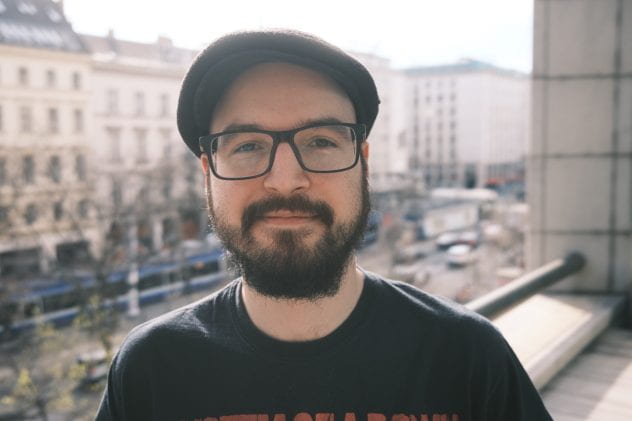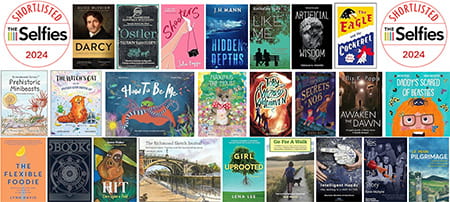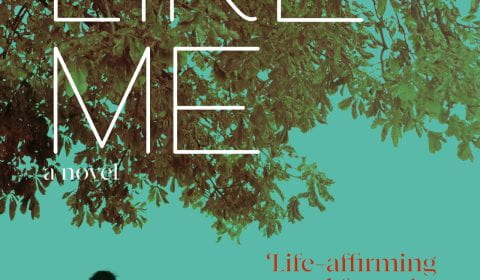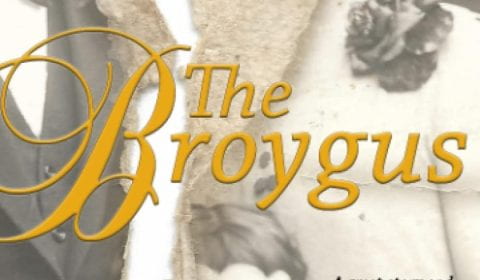
Author Dominik Jemec Photo by Marcel Kukovec
By Dominik Jemec
“You’ll never be good enough because you’re not a native writer.” That’s what a professor of translation studies at my university in Austria told me when I said my dream was to be an English writer. That was five years ago.
I’ve had many awful jobs since graduating, from delivering mail in sweltering heat to fielding daily insults while working in a call centre. Then in 2021, I got my first writing job: creating customer care-related content about cryptocurrencies. After a mass layoff in the summer of 2022, I joined a travel company called TourRadar as a content specialist, where I work on creative campaigns.
But I’m not complacent. My impostor syndrome leaks out of me a lot. If you’re a non-native writer like me, you may be fighting the same demons. Here’s how I keep them at bay.
I split up my writing process
You can’t be a writer without writing. But if you’re constantly questioning your skills, how do you actually get down to writing?
First, research. I use AI tools like ChatGPT 4. They’re just much better than looking things up online. I write detailed prompts because the better my input, the better the output.
Then I write, without overthinking. To stay focused, I put on a timer and just hammer out the text. If I have writer’s block, I ask ChatGPT to write a draft based on the research.
Lastly, I edit. It’s a tough process. Sometimes I have to remove parts I really like that just don’t fit. But I never discard them – I put them in a document with other unused content. Editing is ‘magical’. I might go a certain direction when I write, then turn it on its head when I edit.
I seek feedback
I’ve often been scared to send a piece of writing to my manager for proofreading. I would try to make every sentence perfect, thinking I’d be sacked if I didn’t. The pressure I put on myself took more energy than the writing itself, so I eventually learned to let go.
Every time my manager gives me feedback, I go through it carefully, analysing where I need to improve. All my favourite writers – Kurt Vonnegut, Douglas Adams and Hunter S. Thompson – got edited, so why shouldn’t I?
Outside of work, I get writing feedback from the Sunday Writers’ Club, and do specialised courses, including City, University of London’s Introduction to Copywriting, led by Maggie Richards. Not only did I learn the fundamentals of copywriting, I wrote a lot of copy and received helpful feedback from Maggie.
I connect with other writers
I listen to writing podcasts like the Copywriter Club, and follow creative writers like Drayton Bird, Dan Nelken and Eddie Shleyner on LinkedIn. If, for example, you love advertising like I do, whenever you see an ad you like, find out who produced it and start following them on social media. The knowledge writers share (for free) is staggering.
I embrace my voice
I used to embellish my writing because I really wanted to prove myself. But I’ve found that such texts are mostly unreadable. I’ve learned that simplicity wins.
There is merit in emulating good flow and sentence structure, but at the end of the day, your voice is your USP. Incorporate idioms, metaphors and storytelling elements from your own culture. Your writing will stand out.
I apply for all writing jobs
Many writing jobs ask for a native writer. After I started my current job, I asked our recruiters how many people had applied for the position. Through one job search platform alone there were over 60 applicants. Many were probably native writers with impressive CVs. So why did I get the job? Maybe because of my unwavering passion for writing.
I truly hope my tips help you overcome any self-doubts you may have as a non-native writer – and inspire you to keep on writing well, no matter what lies ahead.
About the author: Dominik Jemec is a Slovenian working in Vienna as a content writer in his third language, English. You can connect with Dominik on LinkedIn.
Dominik took City’s Introduction to Copywriting course taught by Maggie Richards. As part of the course, students can pitch a blog idea. If successful, the post will then be edited and appear on our site. For our full range of courses, visit HERE.
 nals.
nals.

 Are you a budding copywriter looking for tips on how to get started? Here are three simple steps to help you build a portfolio using your interests as inspiration. Whether you love golf, graphic design or doing good, these strategies will help you on your way to producing top-notch copy.
Are you a budding copywriter looking for tips on how to get started? Here are three simple steps to help you build a portfolio using your interests as inspiration. Whether you love golf, graphic design or doing good, these strategies will help you on your way to producing top-notch copy.

 By Maria Sigacheva
By Maria Sigacheva The introduction should summarise the purpose of the letter. Whether it’s about missing documents or querying financial statements, make it clear upfront.
The introduction should summarise the purpose of the letter. Whether it’s about missing documents or querying financial statements, make it clear upfront. information twice. Make sure you order events chronologically.
information twice. Make sure you order events chronologically.















Recent Comments